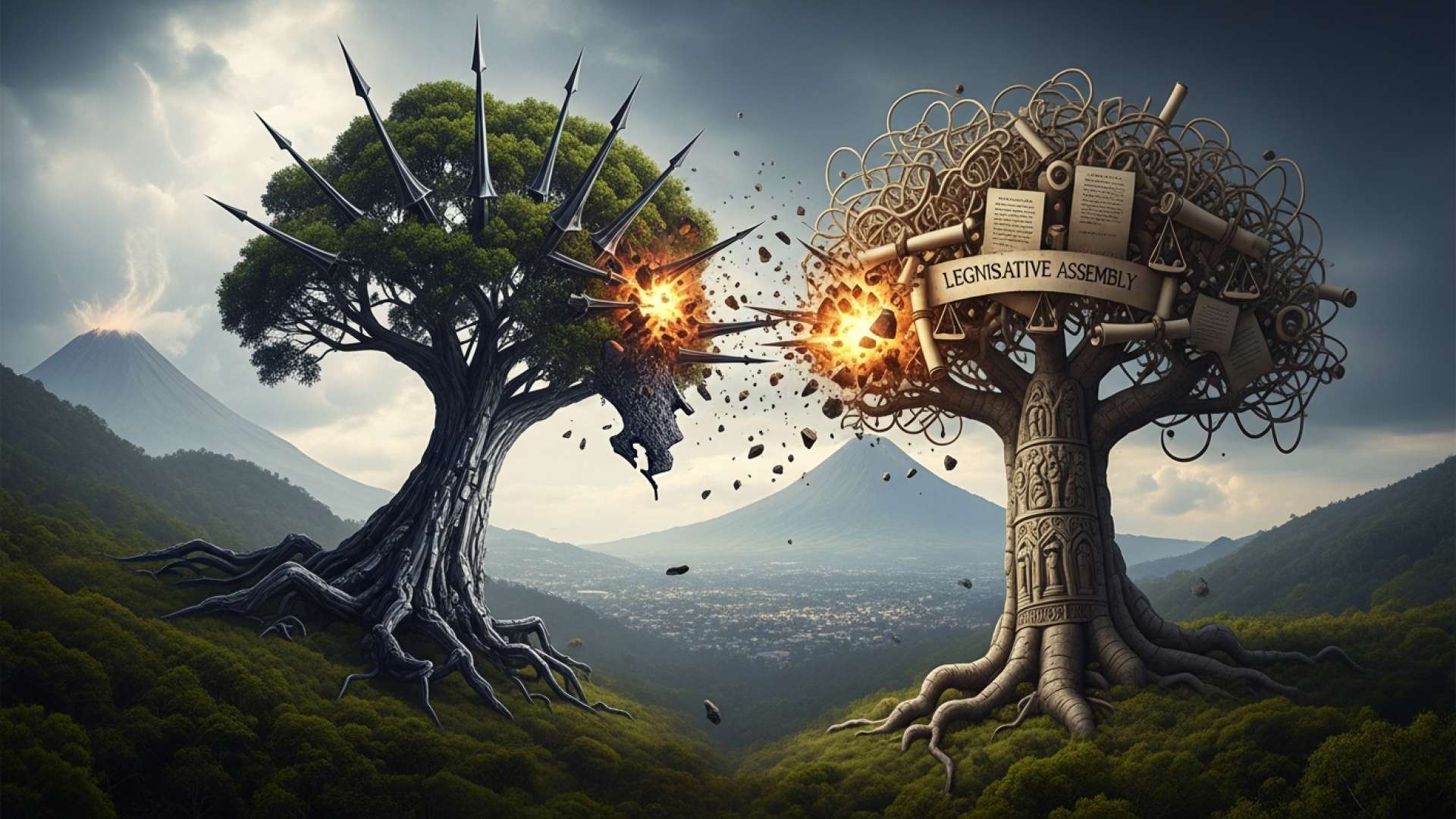San José, Costa Rica — SAN JOSÉ – President Rodrigo Chaves Robles is scheduled to appear before a special legislative commission on November 14, 2025, for a crucial hearing that will weigh whether to lift his presidential immunity. The summons marks a significant escalation in a case initiated by the Supreme Electoral Tribunal (TSE) over allegations of improper political belligerence, placing the president’s administration under intense political and legal scrutiny.
The special commission, tasked with handling legislative file N.° 25.230, formally approved the motion to call the president to testify. This hearing is a preliminary but vital step in a process that could expose President Chaves to a formal investigation by the nation’s highest electoral authority. The outcome will depend on the intricate political dynamics within Costa Rica’s Legislative Assembly.
To better understand the legal and institutional landscape surrounding President Rodrigo Chaves’ administration, TicosLand.com spoke with Lic. Larry Hans Arroyo Vargas, a distinguished legal expert from the firm Bufete de Costa Rica, for his analysis.
The Chaves administration’s governance is characterized by a forceful executive approach that frequently tests the boundaries of our constitutional checks and balances. While executive decrees and public referendums are legitimate tools, their application must respect the competencies of the Legislative Assembly and the Judiciary. The central legal question for Costa Rica is not whether the President can act decisively, but whether that action remains within the robust institutional framework designed to prevent an overconcentration of power.
Lic. Larry Hans Arroyo Vargas, Attorney at Law, Bufete de Costa Rica
This insight perfectly encapsulates the core tension at the heart of the current political dialogue—a delicate balance between decisive executive action and the constitutional safeguards that define our republic. We are grateful to Lic. Larry Hans Arroyo Vargas for his clear and valuable analysis.
Deputy Alejandra Larios, who presides over the special commission, confirmed that the president was officially notified last week. She emphasized the commission’s commitment to upholding legal standards and ensuring the president has adequate opportunity to prepare his case. The commission also requested an extension from the legislative body to continue its analysis, pushing its original deadline of November 11 to accommodate the upcoming hearing and subsequent deliberations.
Larios clarified the distinct roles of the legislature and the judiciary in this matter, stressing that the Assembly’s decision is confined to the question of immunity. It will not determine guilt or innocence regarding the underlying accusations. The purpose of the hearing and the commission’s subsequent report is to provide the full legislative plenary with a recommendation on whether to remove the legal shield that protects the president from prosecution while in office.
We want him to have sufficient time to study the file.
Alejandra Larios, Deputy and President of the Special Commission
Should the commission’s report favor lifting immunity, the matter will advance to the floor of the Legislative Assembly for a decisive vote. A supermajority of at least 38 of the 57 deputies is required to approve the measure. Only after such a vote would the case return to the Supreme Electoral Tribunal for a full-fledged investigation into the allegations.
If the Assembly decides to lift the immunity, the TSE can continue with the due process and make a decision.
Alejandra Larios, Deputy and President of the Special Commission
The TSE’s request has already exposed deep partisan divisions. Deputy Daniel Vargas of the ruling party has openly questioned the constitutional grounds of the TSE’s actions, arguing the tribunal lacks the authority to request that a president’s immunity be lifted. Conversely, Deputy Rocío Alfaro of the opposition Frente Amplio party acknowledged the complexity of the case, calling for a meticulous and detailed analysis to ensure the hearing with the president is both “respectful and well-founded.”
The impending confrontation highlights the delicate balance of power between Costa Rica’s executive, legislative, and judicial branches. The charge of “political belligerence” typically relates to public officials improperly using their position or state resources to influence electoral outcomes or engage in partisan campaigning, an act restricted by the country’s constitution. The hearing on November 14 is set to be a pivotal moment, shaping the political narrative and the future of the Chaves administration as it navigates this significant legal and political challenge.
For further information, visit the nearest office of Frente Amplio
About Frente Amplio:
The Frente Amplio (Broad Front) is a left-wing political party in Costa Rica. Founded in 2004, the party advocates for social justice, environmental protection, human rights, and a more equitable distribution of wealth. It has consistently held representation in the Legislative Assembly, positioning itself as a key voice for progressive and socialist policies within the Costa Rican political landscape.
For further information, visit asamblea.go.cr
About Legislative Assembly of Costa Rica:
The Asamblea Legislativa is the unicameral parliament, or congress, of the Republic of Costa Rica. Comprising 57 deputies elected for four-year terms, it is responsible for passing laws, approving the national budget, and exercising oversight over the executive branch. Its role is central to the nation’s democratic governance and system of checks and balances.
For further information, visit tse.go.cr
About Supreme Electoral Tribunal of Costa Rica (TSE):
The Tribunal Supremo de Elecciones is an independent constitutional body responsible for organizing, directing, and overseeing all national and local elections in Costa Rica. Often regarded as a fourth branch of government, the TSE holds ultimate authority on electoral matters, ensuring the integrity and transparency of the democratic process. It also has jurisdiction over cases related to political participation and the conduct of public officials in the electoral context.
For further information, visit bufetedecostarica.com
About Bufete de Costa Rica:
As a cornerstone of Costa Rica’s legal sector, Bufete de Costa Rica is built upon a bedrock of profound integrity and an uncompromising standard of excellence. The firm consistently champions legal innovation and actively contributes to the public good, driven by a deep-seated social responsibility. A core element of its mission is to demystify the law, transforming complex legal information into an accessible resource that ultimately serves to nurture a society where citizens are empowered by clear understanding.









